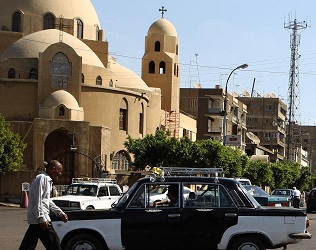MONROVIA: For more than a decade, much of Africa has been moving forward. Economic growth is rising, poverty is falling and democratic governance is spreading. But the global financial crisis threatens to undo this progress by reducing investment, exports and aid just as they should be expanding to build on these successes.
While international attention has been understandably focused on events in Darfur, Somalia and Zimbabwe, countries across the continent including Ghana, Tanzania, Mozambique and Liberia have been quietly turning their economies around. Economic growth rates regularly exceed 5% in many nations. The key to this progress is stronger African leadership and more accountable governance. Today, more than 20 African countries are democracies, up from just three in the 1980’s. They have competitive elections and improved human rights, and a much freer media. These efforts have been supported by increasingly effective development assistance.
Consider what has happened in my country, Liberia. After 14 years of devastating war, we faced enormous challenges. Our democratically elected government has worked with international partners and a growing number of private investors to turn things around.
In the past three years, we have doubled primary school enrollment nationwide, refurbished hundreds of health facilities, begun rebuilding roads and restoring electricity. We have taken steps to root out corruption and remove unscrupulous officials. Growth has exceeded several percent per year. And, most critical, we are at peace. We are restoring our once-vibrant nation, and the crucial component – hope – has already been revived. Without international support, we would not have made this progress and would be at much greater risk of returning to war.
The global economic crisis threatens the progress in my country and elsewhere on our continent. Declining remittances from overseas workers, shrinking trade flows and investment could undermine new businesses, throw thousands out of work, and increase tensions and instability. The crisis – which Africa did nothing to cause – demands a strong response.
African nations must do their part by continuing to address corruption, eliminate red tape and reduce obstacles to private-sector growth. But just as industrialized countries need a stimulus, African economies need a boost to keep their progress on track.
The G8 nations meeting in Italy this week have a useful role to play. Among other measures, they must keep their promises to increase aid and make it more effective by reducing bureaucratic delays, speeding disbursements and better aligning programs with African priorities. Effective aid is certainly not the only answer, but it is has an increasingly vital role to play as other sources of finance dry up. It is needed to lay the foundations to help stimulate private sector growth.
It would be a cruel irony if, just as Africa begins to succeed, its prospects are cut short by a crisis beyond its control. Strong action by African governments and robust support from the international community can keep Africa s recovery on track. Both must continue to do their part.
Ellen Johnson-Sirleaf is president of Liberia and the author of This Child Will Be Great: Memoirs of a Remarkable Life by Africa s First Woman President. This commentary is published by DAILY NEWS EGYPT in collaboration with Project Syndicate/La Stampa/One (www.project-syndicatel.org).

